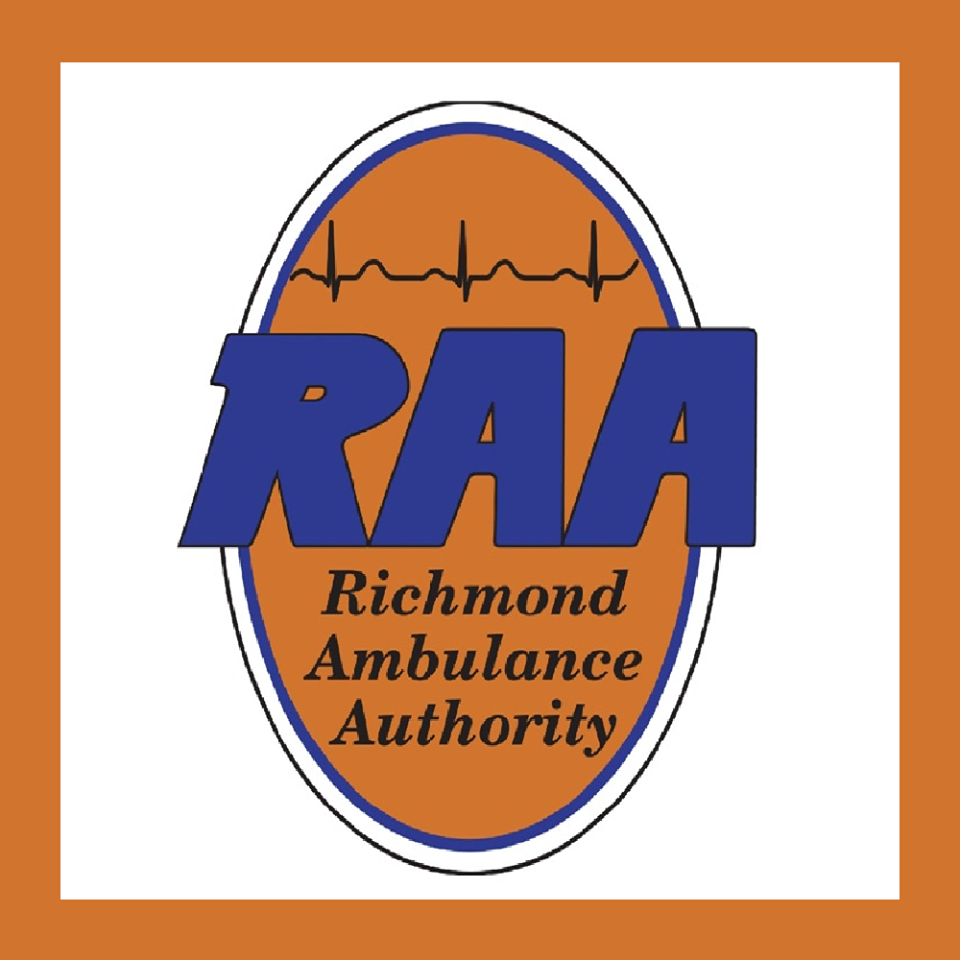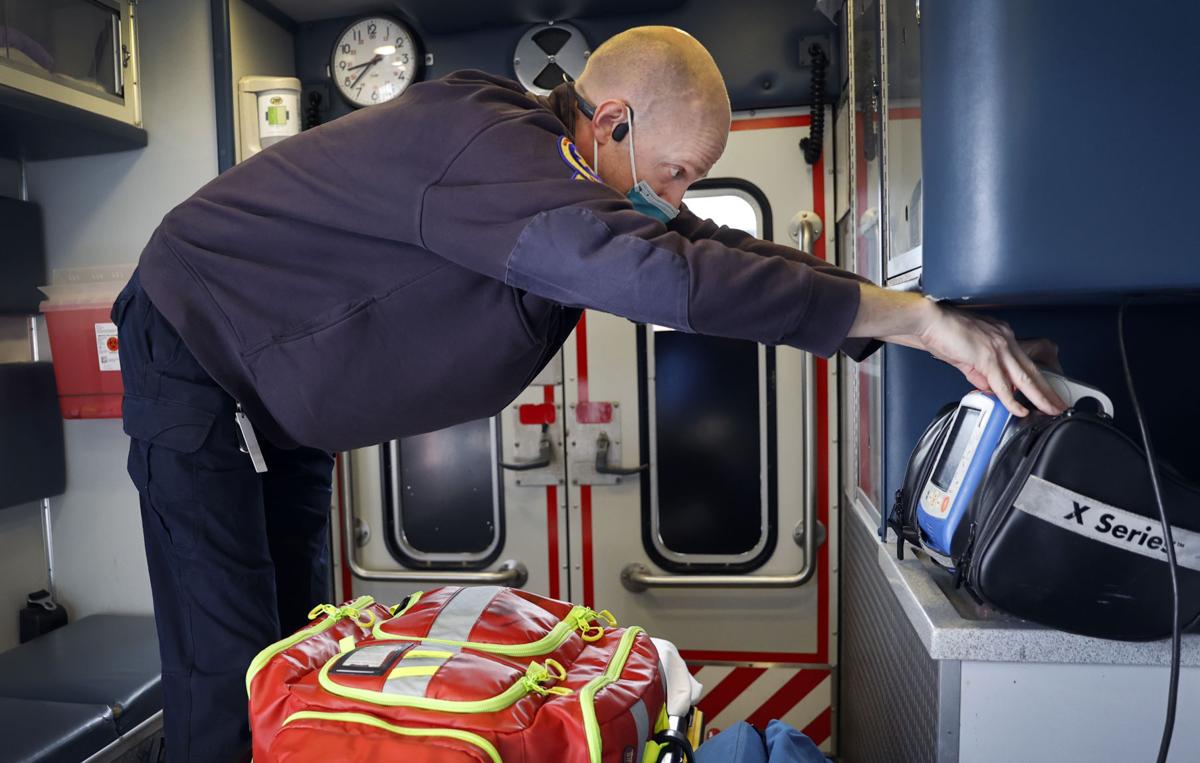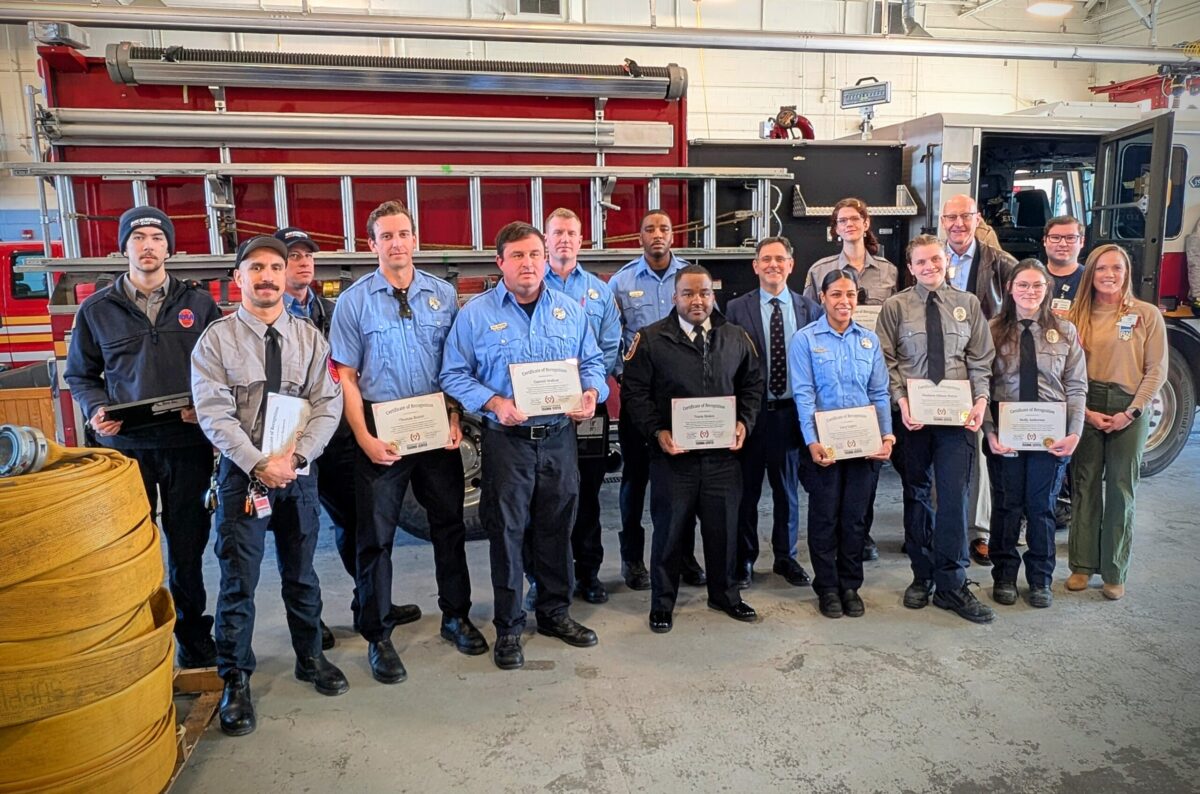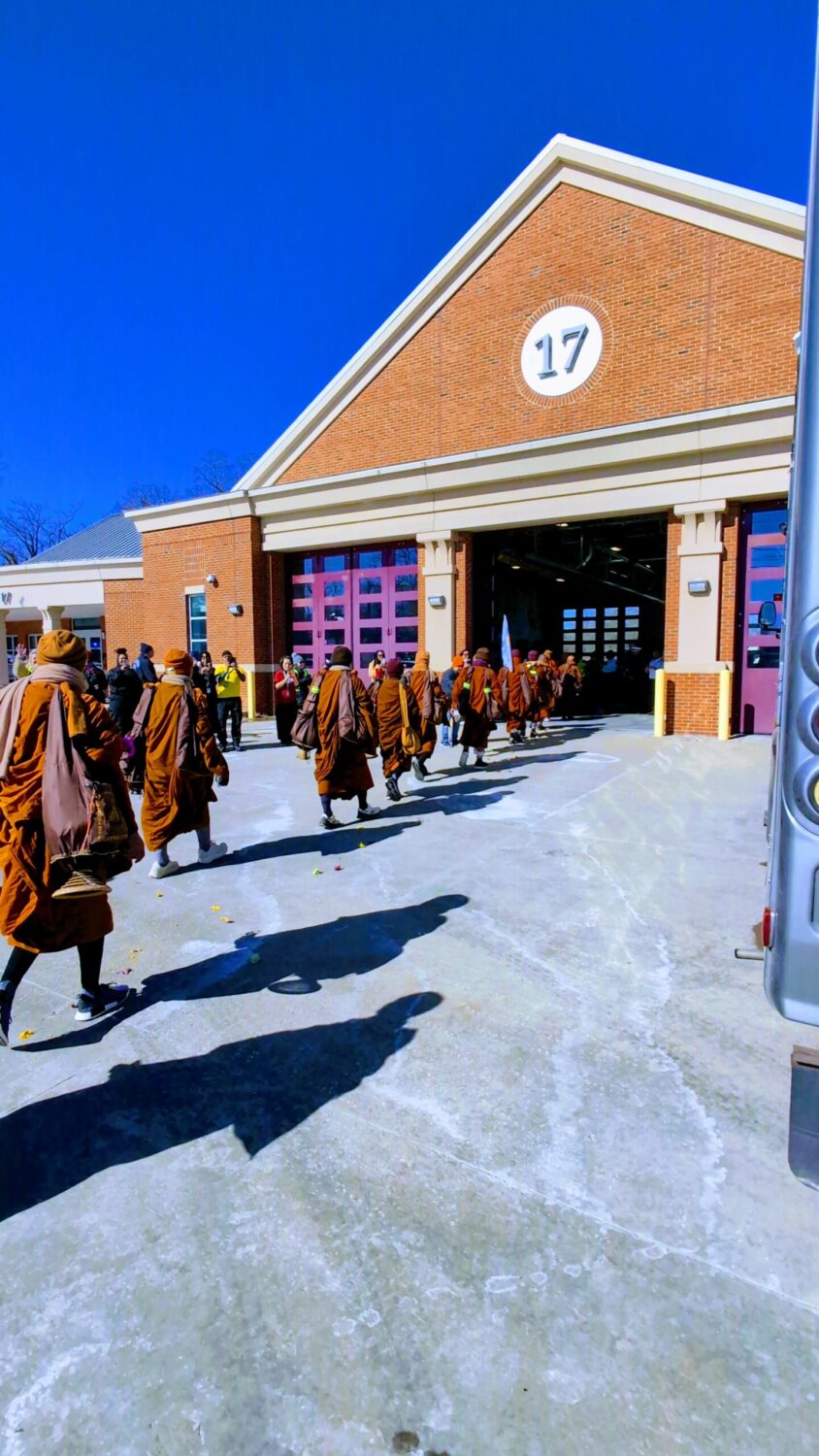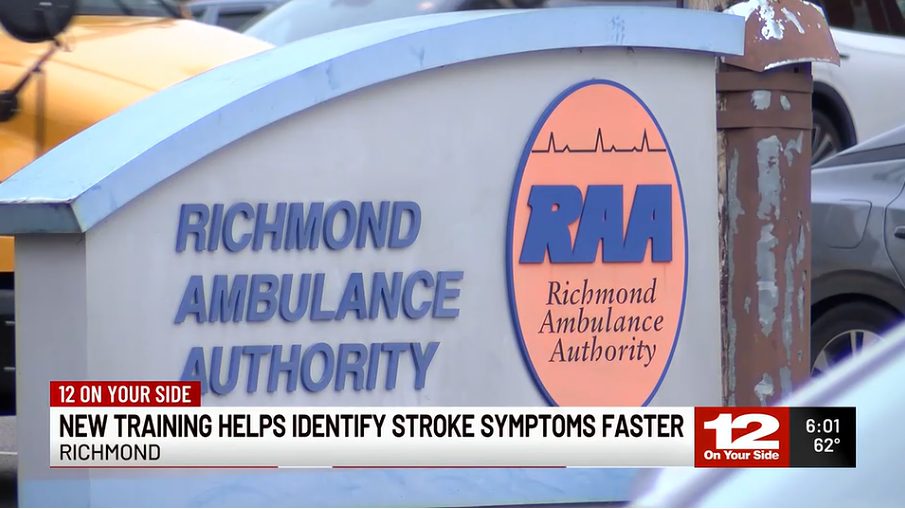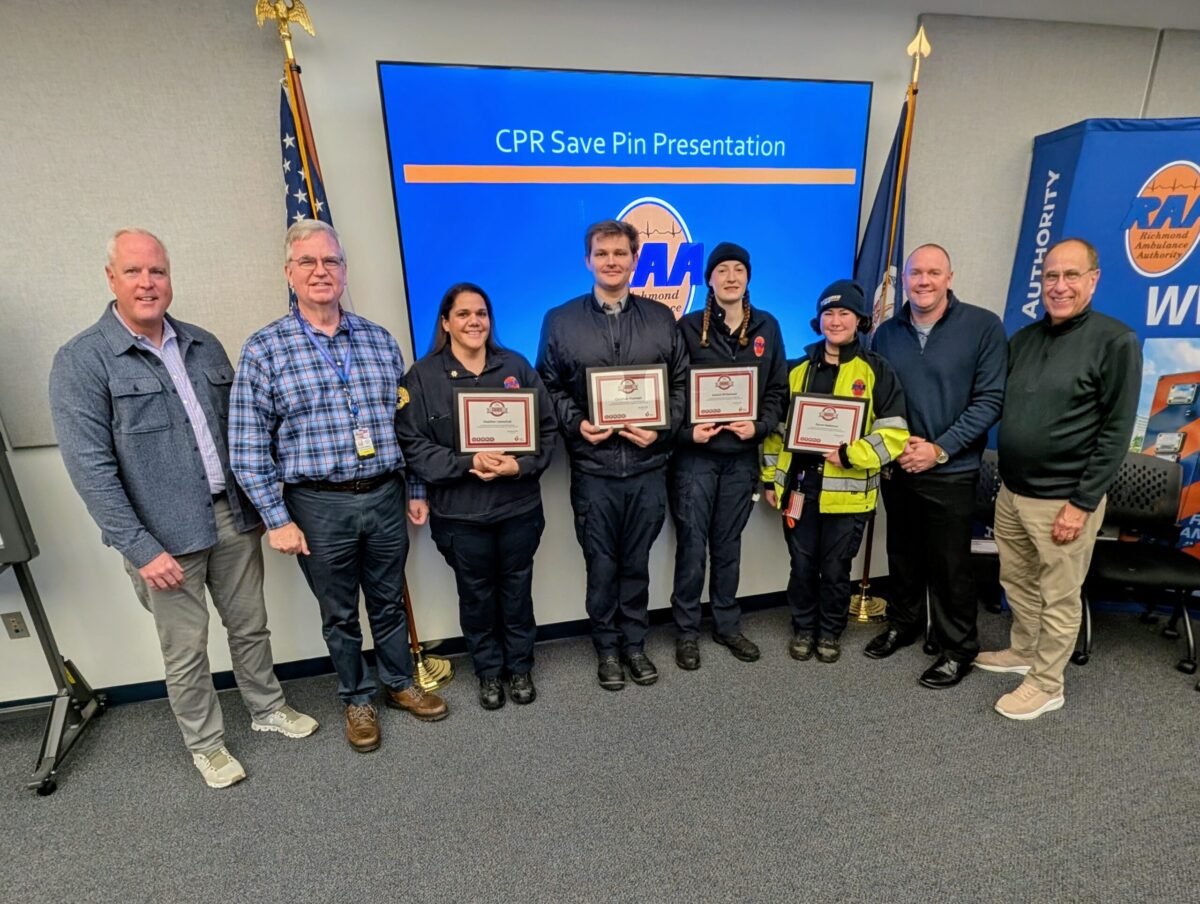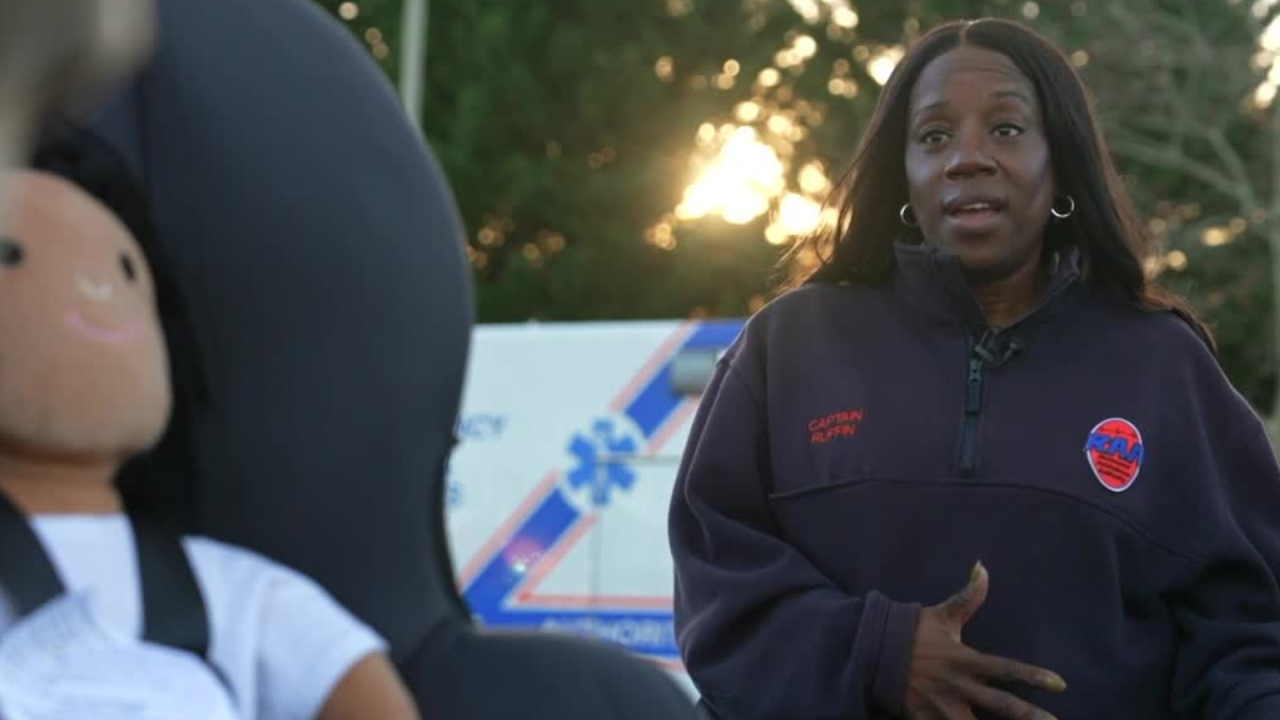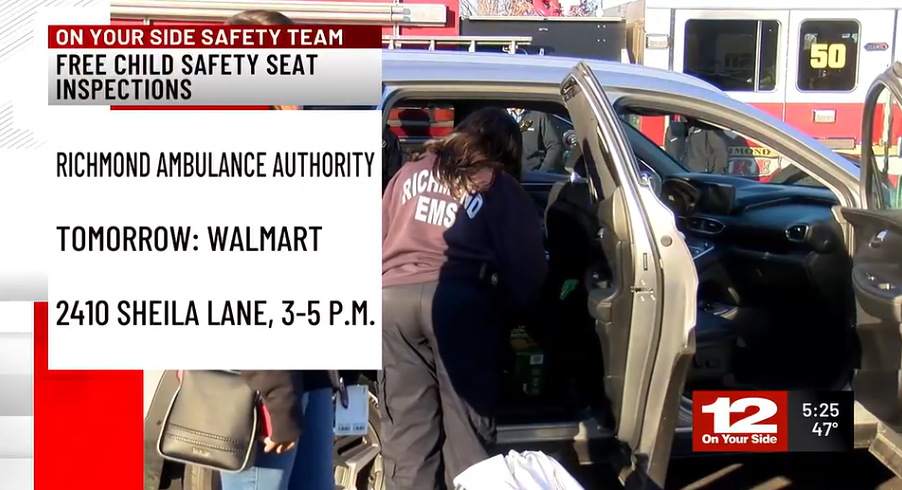This story originally appeared on richmond.com
Despite the stress and uncertainty of the past year, Capt. Wes Wampler said he wouldn’t want any other job.
As a paramedic with the Richmond Ambulance Authority, Wampler has been on the front lines of the pandemic since it first came to the city a year ago.
“I’m not the type to stay at home,” Wampler said in a recent interview, a follow-up to an earlier conversation in May, months into the virus’s grip on the globe. “I’d rather be out there, even if it’s higher risk. This is where I want to be.”
But to do the job during a pandemic, he had to make sacrifices in his personal life.
Last year, Wampler was waking at 4:30 a.m. for 12-hour shifts — two days on, two days off — that began with sanitizing the building where the paramedics work.
None of it has really changed a year later.
Wampler estimated he’s been to one restaurant in the last year. A Cracker Barrel, at the crack of dawn, and the moment other diners arrived, he finished his meal and left.
“We need to take extra precautions that the general public probably doesn’t think about,” he said of EMS providers. “Because if we go out to a party and we get this virus, the following day we come into work and we’re around the more susceptible people and they’re relying on us to take care of them … if we put them in harm’s way, that goes against what our mission is.”
But the biggest sacrifice for Wampler has been in his interactions with family. Visits with his parents, who live in Broadway, had been limited to sitting outside on their porch.
“No hugs,” he said.
But two weeks ago, after both he and his parents had each received second doses of the vaccine, Wampler visited the home where he was raised for the first time since the pandemic began.
“I was able to go inside my parents’ house, comfortably. I hadn’t been inside the house in a little over a year,” he said, adding they still kept their distance and all were masked. “Just walking into my parents’ house was a huge step. It was a breath of fresh air.”
Still no hugs, though, Wampler said.
“But we will, hopefully, soon,” he added, saying he’s “cautiously optimistic” about the future as vaccine rollouts have increased.
Like many families, they’ve become very familiar with the videoconferencing platform Zoom. Wampler’s wife, who is also a paramedic and an epidemiologist, moved to Greenville, S.C., in June for a post-doctorate program.
“That’s how we did Christmas, over Zoom,” Wampler said.
He uses the six-hour drive on his days off to decompress from a job that’s stressful even in the best of circumstances.
“Nine months ago, we weren’t sure what the light at the end of the tunnel was,” Wampler said. “Whether it was a train or something else. But we’re pretty convinced now that it’s hopefully a step toward moving forward from this. It’s very reassuring.”
Wampler said he’s anxious to see the other side of the tunnel, but for now, he and his colleagues at the RAA will continue to take the extra precautions to keep not only themselves and their families safe, but their patients.
“It’s been quite a toll on everybody in the world, but you can definitely see it with EMS providers. The precautions that we take, that we’re going to continue to take,” he said. “It just puts in perspective that we’re all intertwined.”
Despite his optimism, Wampler warned that we haven’t fully emerged from the threat yet. He encourages everyone who is able to get vaccinated.
Call volume is up, he said. Early on, the RAA’s workload dipped as people hesitated to call an ambulance or go to the hospital, but it quickly returned to normal and has now surpassed what is “normal” as restrictions have loosened.
“It’s great to see that the public can go out and interact more, but it’s not something that us in EMS can do,” he said. “I don’t think we’re quite at that point yet.”
